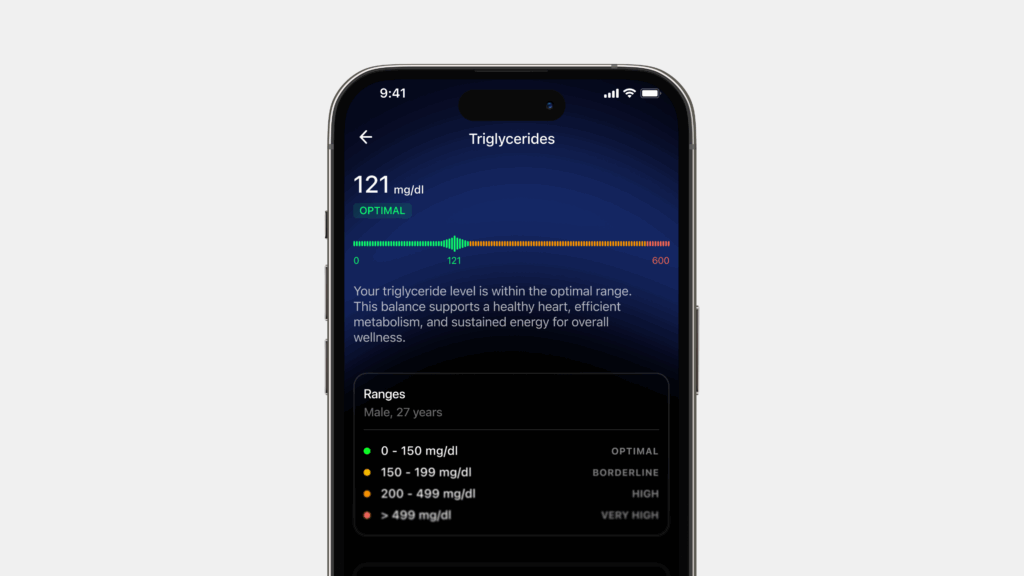What is metabolism?
Metabolism is commonly defined as “the sum total of chemical reactions in living cells that keep an organism alive.” It often refers to the processes by which organisms extract energy and nutrients from food, break down sugars and fats to extract energy, synthesize proteins, and regulate the flow of this information.
Metabolic rate, or Resting metabolic rate (RMR) is a measurement of how much energy (calories) the body burns while performing basic functions when you are at complete rest—for instance, while you’re laying in bed or watching television. Basal metabolic rate (BMR) is the amount of energy per unit of time a person needs to keep the body functioning. These two measurements are often used interchangeably, but they are slightly different. This means that metabolism is how quickly your body burns food for fuel. But it also helps your body to carry out various essential functions—storing and burning fat, regulating sugar levels and keeping your neurons healthy. The resting metabolic rate accounts for about 60-75% of the daily calorie expenditure by individuals. For men, the average BMR range is between 1600 to 2000 kCals per day (or 7100 kilojoules per day), while for women it is between 1300 to 1550 kCals per day (or 5900 kilojoules per day). It is influenced by several factors, such as weight, height, age, gender, etc., but generally declines by 1-2% each year as you get older.
Metabolism is personalised
It is important to remember that metabolism is not a one-size-fits-all approach. Metabolism involves complex molecules and interrelated pathways and the metabolic rate varies from person to person. Your metabolism is not 100% under your control. There are a variety of different factors that go into making your metabolism what it is, like your body type, gender and age, as well as various others that are entirely individual.
Measuring the rate of a person’s metabolism is done through a process called indirect calorimetry. This process computes things such as oxygen consumption or carbon dioxide production in order to calculate how much energy a person consumes at rest over a period of time. Although the measurements may vary, you can work towards optimising your metabolism and metabolic health by developing some basic habits.
Optimising metabolism
Increasing the metabolic rate can help in burning more calories. The following ways have been shown through various studies to boost metabolism rates:
Exercise: From High-Intensity Interval Training (HIIT) to anabolic and catabolic workouts to non-exercise activity thermogenesis (NEAT), your levels of physical activity have a strong link with metabolism. Activity energy expenditure (AEE) includes exercise and non-exercise activity thermogenesis (NEAT). Exercise and NEAT can comprise 20–50% of total energy expenditure. NEAT is everything that we do that is not sleeping, eating, or sports-like exercise.
Diet: What you eat is an important contributor to your metabolism. Nutrients serve a key function in the process of breaking down your food and affect the hormones which regulate metabolism. Hence, having a well-balanced diet is an essential aspect of metabolic health. High fibre foods, plant-based proteins and iodine-rich foods are some of the thermic foods that are associated with supporting a healthy metabolism.
Sleep: Various studies have shown the ways in which sleep affects hormonal and metabolic processes in our bodies. Sleep is important in maintaining metabolic homeostasis. Sleep deprivation and disorders can have a profound impact on our metabolic health and lead to greater levels of stress, glucose intolerance and insulin resistance. Poor sleep is associated with increased oxidative stress, glucose (blood sugar) intolerance, and insulin resistance. One of the reasons for this, suggested by epidemiological studies, is that lack of sleep has an effect on glucose metabolism and the metabolic rate.
Stress: Studies have shown that anxiety and stress can derail your metabolism in different ways. Chronic stress can have an impact on metabolic health, and can even impair the function of insulin or affect glucose metabolism. Similarly, metabolic disturbances have been linked to mental health disorders such as depression and anxiety.
Examining these factors in greater detail, we can see how they play a role in our metabolic health and consider the research to discover the most effective ways to improve our metabolic rate.

EXERCISE
We all know that exercise is important in maintaining health and fitness, but the way in which different forms of exercise impact metabolism can help us choose the most appropriate workouts for our bodies. Regular training increases blood flow in the muscular system, oxidative capacity, lipid metabolism and signalling proteins which enhance insulin action, leading to better metabolic health. Depending on whether you practice high-intensity workouts or mild cardio/low-intensity activity, the body and metabolism are impacted, triggering either anaerobic or aerobic responses that break down glucose in different ways.
Studies have also shown that regular exercise can boost metabolic rate even hours after physical activity, and that mild activity can also improve metabolism. While lack of exercise can be detrimental to the metabolic rate, over-training can also have a negative effect on metabolism. If the rest, recovery and nutrition received by the body are not enough, it tends to store fat as a response to lack of nourishment or calorie deficit, which can lead to disruption in the metabolic process.
Based on different studies and research papers, the scientific consensus seems to suggest a number of things when it comes to exercising that can help to boost metabolic rate.
- High-Intensity Interval Training (HIIT) is more effective in improving metabolic speed. A number of studies have shown that high-intensity workouts can induce body composition improvements. Although both interval training and moderate-intensity training were shown to have an impact on improving body fat percentage, interval training also had the additional benefit of 28.5% greater reductions in total absolute fat mass. Moreover, HIIT is also considered to be a more time-efficient method for both weight management and metabolic acceleration.
- Balancing anabolic and catabolic workouts is important and choosing the right one depending on your goal can greatly help your metabolic processes. Catabolism and anabolism are simultaneous phases of metabolism that help organise molecules to keep the body running. Anabolism centres around growth and building, while catabolism involves the breakdown of larger, complex molecules into smaller ones used for energy. When you do a lot of anabolic workouts, you tend to shed fat and maintain or even gain muscle. Muscle is denser than fat, so body weight and body mass index may stay higher despite a leaner physique. Catabolic workouts, on the other hand, may help you shed pounds by working off both fat and muscle. You’ll weigh less, but you’ll also have less muscle mass. Since muscle mass is one of the key variables that affect your basal metabolic rate — as muscle tissue burns more calories than fat tissue does — doing only catabolic workouts might have a counterproductive effect. A blend of exercises that includes both anabolic and catabolic exercises (such as a combination of cardio and strength training) can produce optimal results in boosting metabolic rate.
- Non-exercise Activity Thermogenesis (NEAT) plays a key role in your metabolism. NEAT is anything we do that is not sleeping, eating or exercising, with these actions still contributing to total energy expenditure. Energy expended in simple daily tasks such as standing, walking, cooking and so on can also play a role in our metabolic health. In fact, even trivial physical activities have been shown to raise the metabolic rate substantially, and illustrate the importance of staying active even in small ways throughout the day.
Diet
Food is an essential component of our metabolic health. A well-balanced diet is an important factor in maintaining and improving the rate of metabolism, and certain categories of foods have a greater impact than others.
Protein-rich foods often contain more calories than other foods, which is why it’s important to stay within your calorie range if you want to lose weight. A high-protein intake has also been shown to improve muscle mass, maintain muscle mass during weight loss, reduce appetite and make it easier to stick with a healthy eating plan. The reason for this is that proteins are truly a ‘building block’ of the body, made up of amino acids that play a role in everything from muscle building to the growth and repair of cells and tissues. An elevated protein intake plays a key role in the metabolic process since protein is not only the most satiating compound (compared to carbohydrates and fats) but also has a higher thermic effect (energy required for digestion, absorption, and disposal of ingested nutrients. TEF uses 10% of energy. It is defined as ‘the increase in metabolic rate after ingestion of a meal’) and thus increases metabolism.
More time and effort is required in breaking down protein than carbs, but not as much as fat. It requires more chewing than other kinds of food. It then traverses to the stomach and is blended with gastric juices that are repositories of acids and enzymes that help break down food. Next, that mixture is conveyed in steady instalments to the small intestine. Here pancreatic enzymes and acids aid in breaking down the protein. Then you have the singular amino acids that are transferred to the liver and are reconstructed into the kind of protein that suits the body’s unique requirements. Excess protein is stored in fat tissue. A 2017 Dutch study showed that a combination of a high-protein diet and resistance exercise was the most significant way to preserve fat-free mass while aiding in weight loss. This said a high-protein diet should be adopted in consultation with a trained professional based on body type and fitness goals.
- Green tea has been used for centuries in Asian cultures as a natural, refreshing drink. It has also become increasingly popular in Western cultures due to the many health benefits it offers. The two main types of green tea are Sencha and Matcha. Sencha is made with steamed green tea leaves, while Matcha is made with green tea leaves that are ground into a fine powder. Matcha is higher in antioxidants than Sencha because there are no leaves left over after the grinding process. Studies have shown that Matcha Green Tea along with aerobic exercise increases the metabolic rate, thanks to the catechins in matcha. Catechins are natural compounds that act as antioxidants, and in conjunction with caffeine, they are more effective in producing significant effects on metabolic targets such as thermogenesis and fat oxidation.
- Avoiding foods that are high in glucose, sodium or trans-fats has also been shown to be important for metabolic health because excess sugar or certain kinds of lipids can disrupt your metabolism. Consuming low glycemic index and low glycemic load foods is a good way to balance your glucose levels and maintain metabolic health. Higher consumption of refined and processed foods has also been associated with a lower likelihood of healthy metabolism and disruption of metabolic health. Metabolic health is described as having ideal levels of blood sugar, triglycerides, high-density lipoprotein (HDL) cholesterol, blood pressure, and waist circumference, without using medications. The reason for this is that certain compounds such as fructose and trans-fats are metabolised in the liver, and converted to glucose or fatty acids via lipogenesis. When this happens, insulin secretion is not activated. Similarly, excess glucose is also deposited in fat tissues in the form of triglycerides. Over time, the consumption of these foods is connected with adverse effects on metabolism and increases the risk of heart disease, insulin resistance and obesity.
SLEEP AND METABOLISM
Sleep and its benefits are seen as increasingly important in our largely sleep-deprived society. Sleep is intricately connected to various hormonal and metabolic processes in the body, and is important in maintaining metabolic homeostasis. Laboratory studies have clearly shown that sleep deprivation can alter the glucose metabolism and hormones involved in regulating metabolism, that is, decreased leptin levels (hormone that indicates satiety and suppresses food intake) and increased ghrelin (hunger hormone that plays a role in meal initiation) levels. A majority of large epidemiological studies have suggested that chronic partial sleep deprivation is associated with an increased risk of obesity and diabetes.
During normal sleep, the metabolic rate reduces by around 15%, which seems comparatively low considering the prolonged physical inactivity. However, this is because the body is working towards maintaining vital cellular processes and the functions of regeneration. An increase in sleep metabolic rate in the face of sleep deprivation or acute sleep loss can have an impact on overall metabolism and energy expenditure.
Low levels of sleep can lead to increased circulating cortisol (a stress hormone) which results in gluconeogenesis (production of glucose from non-carbohydrate sources) and which in turn affects glucose regulation. A study shows that 6 days of sleep restriction has been associated with an increase in evening cortisol levels and nighttime growth hormone concentration, which induces a rapid decrease in muscular glucose uptake. Both these factors can also result in reduced insulin sensitivity due to spikes in blood glucose levels.
The correlation between sleep and metabolism has been under examination since a while. Research suggests that sleep is essential to glucose regulation, and links sleep deprivation with higher incidence of diabetes, obesity and other conditions, since it blunts the finely tuned mechanisms of our hormones, leading to an increase in appetite, ‘emotional eating’ and metabolic dysregulation.
Sleep duration affects the response of hormones associated with appetite – leptin and ghrelin, offsetting the difference between the hormones and leading to changes in food intake. Low sleep levels also lead to higher levels of cortisol and result in gluconeogenesis (production of glucose from non-carbohydrate sources), which in turn affects glucose regulation.
A study found that even intermittent sleep deprivation can cause metabolic health problems. This brief 6 night phase of partial sleep deprivation yielded metabolic profiles in healthy young men that were similar to people with type 2 diabetes.
Intuitively, we know that sleep is important for us to feel energised and healthy. But research suggests that sleep quality also has a strong link with our metabolism, and regular and sufficient sleep is a key factor in our metabolic health.
STRESS AND METABOLISM
Stress triggers the fight-or-flight response and provokes the sympathetic nervous system into producing adrenaline and cortisol, elevating glucose and blood pressure levels. Over time, particularly with chronic stress, this can impact the metabolic rate and lead to insulin insensitivity, altered glucose and a greater propensity for various illnesses.
Chronic stress—where levels are too high without the chance for the body to recover—becomes harmful to metabolic functioning. Cortisol is the body’s natural alarm system which plays an important role in regulating blood pressure and blood sugar levels. In a stressful situation, cortisol causes increased glucose levels for an immediate energy source, inhibiting sensitivity to insulin production by a process called gluconeogenesis. Over time, with chronically elevated glucose levels, the pancreas (which produces insulin to bring down glucose levels in the blood) loses the ability to respond to a high glucose stimulus, causing a reduction in the activity of insulin.
Stress is often accompanied by increased consumption of food or stress eating, which can lead to weight gain, another marker of metabolic health. Coping with and managing stress is important for a variety of reasons, but one of the major ones is that stress can lead to poor metabolism and consequently increase the chances of developing diseases like diabetes or cardiovascular conditions.
It is important to manage stress. From exercise and diet to deep breathing and other stress management techniques, one must make a concerted effort to keep stress levels regulated for overall as well as metabolic well-being.
WAYS YOU CAN BOOST METABOLISM
Metabolism cannot be ‘fixed’ or boosted with a one-size-fits-all approach, but now that we are aware of how it can be impacted by factors like exercise, diet, stress and sleep, determining which areas could be improved upon can enhance holistic wellness. So what are the best ways to boost your metabolic rate?
Here are a few effective steps that have been shown to improve metabolic rate:
- Regular exercise with high-intensity interval training (HIIT) can boost your metabolic rate more effectively than other kinds of training.
- A combination of catabolic and anabolic exercises, such as cardio and strength training. Aerobic activity for 100-150 minutes per week (depending on intensity) and strength or weight training 3 to 4 times per week can speed up metabolism and contribute to weight loss as well as increased muscle mass.
- Standing up more or short walks can help burn extra calories and boost metabolism, compared to sustained periods of sitting or more sedentary lifestyles.
- An increase in protein intake, as protein causes the greatest rise in metabolic activity and reduces the drop in metabolism associated with losing fat.
- Eating smaller meals but keeping up your calorie intake, as this prevents insulin spikes and has a positive net effect on metabolic rate.
- Drinking green tea, particularly matcha tea, or even other forms of caffeine like coffee can have an impact on metabolism and has been shown to boost metabolism by up to 10%.
- Avoiding trans-fats, processed foods, sugars and replacing them with more organic foods or foods like seafood and coconut oil, which are high in omega-3 fatty acids.
- Getting more sleep every night and maintaining a regular sleep schedule. Avoiding sleep deprivation on a consistent basis.
- Using de-stressing techniques like deep breathing, meditation and lowered screen use to balance your stress levels and therefore improve glucose metabolism.
CONCLUSION
Metabolism is an essential part of our functioning and tied to every aspect of our health. Metabolic rate, or Resting metabolic rate (RMR) is a measurement of how much energy (calories) the body burns while performing basic functions when you are at complete rest. The variety of techniques that can be used to boost metabolic rate draw upon aspects of lifestyle such as exercise, diet, sleep and stress levels, and can be extremely beneficial for not just fitness but also overall metabolic health.
It is important to remember that optimising metabolism must be done in conjunction with maintaining a healthy lifestyle, and that it will impact people differently based on their body types and other inherent factors.
Disclaimer: The contents of this article are for general information and educational purposes only. It neither provides any medical advice nor intends to substitute professional medical opinion on the treatment, diagnosis, prevention or alleviation of any disease, disorder or disability. Always consult with your doctor or qualified healthcare professional about your health condition and/or concerns and before undertaking a new health care regimen including making any dietary or lifestyle changes.
References
1. https://www.health.com/weight-loss/the-best-ways-to-boost-your-metabolism
2. https://www.healthline.com/nutrition/10-ways-to-boost-metabolism
3. https://www.healthline.com/health/catabolism-vs-anabolism#hormone







